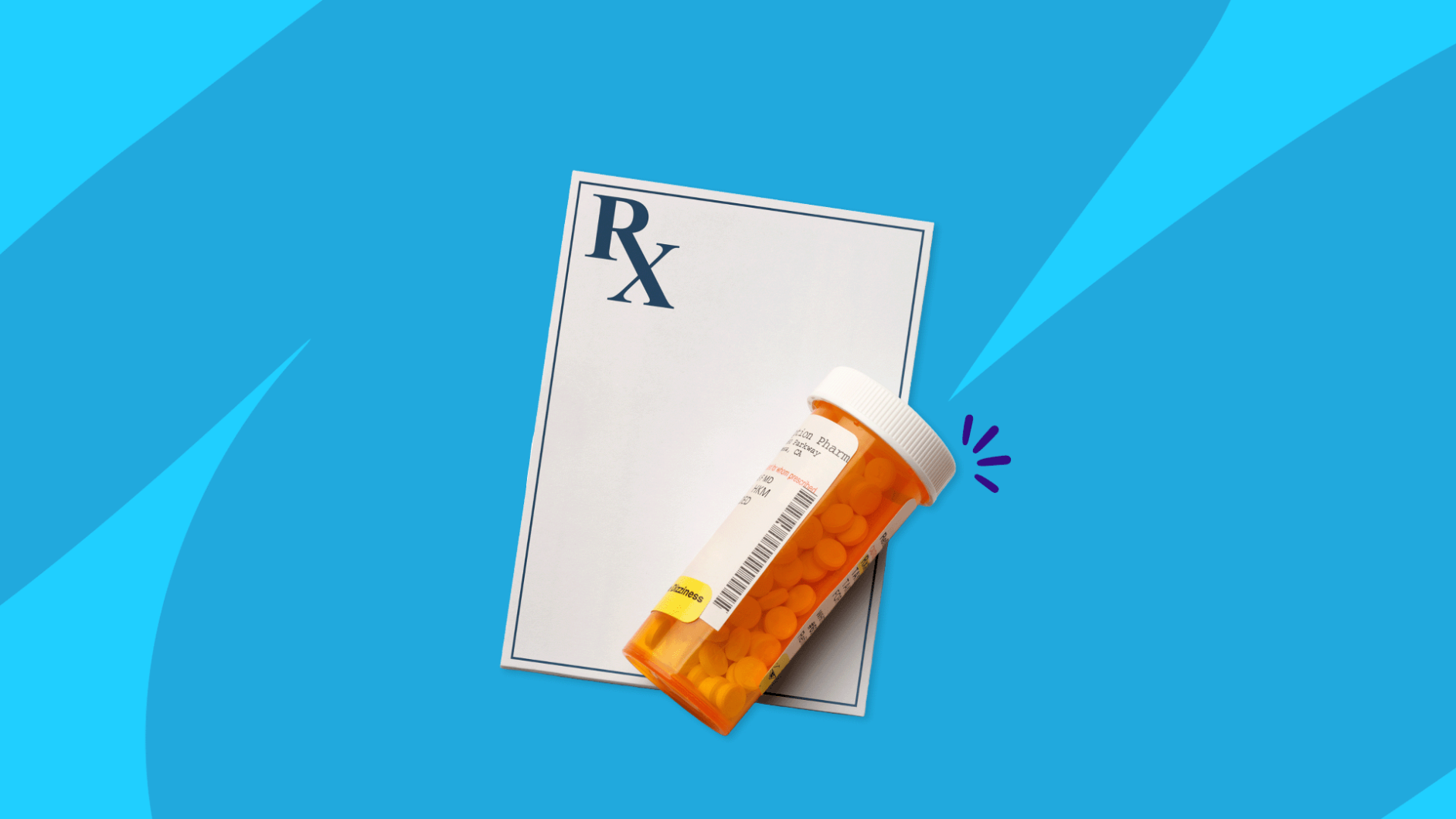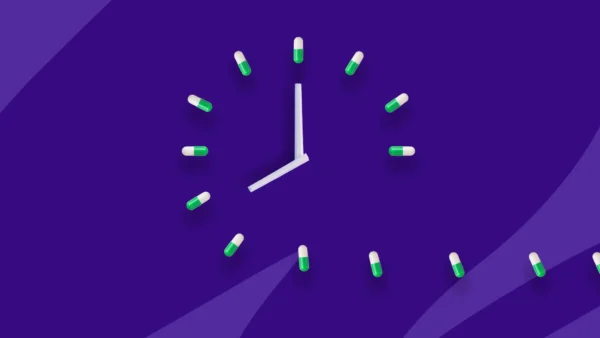Key takeaways
Quetiapine is an antipsychotic that is used to treat mental health conditions such as schizophrenia and bipolar disorder.
Quetiapine may interact with many types of medications, such as drugs that prolong the QT interval, blood pressure medications, and anticholinergic drugs.
Mixing alcohol and quetiapine can worsen drowsiness and impair coordination. For this reason, it’s recommended to limit alcohol use during treatment.
Before starting quetiapine, discuss all current medications that are being taken with a doctor or healthcare provider. They can help identify drug interactions before they occur.
Drug interactions | Food interactions | Other interactions | Avoiding interactions | When to see a doctor
Quetiapine, otherwise known by its brand name Seroquel, is an antipsychotic drug that is approved by the Food and Drug Administration (FDA) to treat schizophrenia and bipolar disorder. It belongs to the atypical class of antipsychotics and works by balancing specific chemicals in the brain, such as dopamine and serotonin, that affect mood, focus, and thoughts.
While quetiapine is an effective medication, it can interact with several drugs. These interactions may reduce quetiapine’s effectiveness or increase the risk of serious side effects. Therefore, it’s important to discuss all medications that are being taken with a healthcare provider before taking quetiapine. Read on to learn more about which medications can interact with quetiapine and how to avoid interactions to reduce the risk of serious problems.
Quetiapine drug interactions
Quetiapine can interact with many different drugs. The effects of the interaction depend on the specific medication.
Metabolism interactions
Certain drugs interact with the enzyme that breaks down quetiapine in the body. Some medications block the enzyme’s activity, which causes quetiapine to build up in the body and increases the risk of side effects. Other medications enhance the enzyme’s activity, which clears quetiapine from the body faster and makes quetiapine less effective.
Examples of drugs that are enzyme inhibitors:
- Ketodan (ketoconazole)
- Sporanox (itraconazole)
- Norvir (ritonavir)
- Serzone (nefazodone)
Examples of drugs that are enzyme inducers:
- Dilantin (phenytoin)
- Tegretol (carbamazepine)
- Rifadin (rifampin)
- Phenobarbital
Depending on how strongly the drug blocks or enhances the enzyme, the quetiapine dosage may need to be adjusted to account for the interaction.
Drugs that increase the QT interval
The QT interval is when the heart’s lower chambers contract and then fully relax. If the QT interval is prolonged, it can lead to life-threatening abnormal heart rhythms. QT prolongation may occur as a side effect of a medication or a drug interaction.
Quetiapine may prolong the QT interval. When taken with other drugs that cause QT prolongation, this risk is compounded. Therefore, quetiapine typically isn’t prescribed with other drugs that cause QT prolongation. Examples of these drugs include:
- Pronestyl (procainamide)
- Cordarone (amiodarone)
- Quinidine
- Betapace (sotalol)
- Thioridazine
- Geodon (ziprasidone)
- Chlorpromazine
- Moxifloxacin
- Dolophine (methadone)
Medications that slow brain function
Central nervous system (CNS) depressants are drugs that slow brain function and make one less alert. Taking these medications with quetiapine may lead to increased drowsiness and, in some cases, extreme sedation.
Be sure a healthcare provider is aware of all medications being taken, including CNS depressants. If taking quetiapine with a CNS depressant, monitoring more closely for side effects may be necessary.
Examples of CNS depressants include:
- Sedatives, such as Ambien (zolpidem)
- Benzodiazepines, such as Ativan (lorazepam) or Xanax (alprazolam)
- Muscle relaxants, such as Flexeril (cyclobenzaprine)
- Barbiturates, such as phenobarbital
- Pain medications, such as Norco (hydrocodone/acetaminophen) or Oxycontin (oxycodone extended-release)
Metoclopramide
Quetiapine and metoclopramide work similarly by blocking a chemical called dopamine in the brain. If taken together, dopamine levels can get too low. This can result in movement disorders, such as muscle restlessness, involuntary muscle contractions, and tardive dyskinesia. It may also cause a rare but serious condition called neuroleptic malignant syndrome (NMS), which is characterized by a high fever and muscle stiffness. Due to this risk, quetiapine and metoclopramide should not be taken together.
Anticholinergic drugs
Anticholinergic medications may also interact with quetiapine. Quetiapine and anticholinergic drugs both slow down the digestive system, which results in side effects such as constipation. Therefore, taking them together can worsen this adverse effect. Constipation, in particular, is a common side effect of quetiapine. Some people who have taken quetiapine with anticholinergic drugs have experienced life-threatening blockages in their gut.
Examples of anticholinergic medications include:
- Benadryl (diphenhydramine)
- Cogentin (benztropine)
- Toviaz (fesoterodine)
Blood pressure medications
Quetiapine can cause orthostatic hypotension, a drop in blood pressure upon getting up from a seated or lying position. This can increase the risk of dizziness, lightheadedness, and falls. Therefore, quetiapine should be used with caution in people who have heart disease or take drugs for high blood pressure.
Examples of medications that lower blood pressure include:
- Lopressor (metoprolol)
- Zestril (lisinopril)
- Cozaar (losartan)
- Microzide (hydrochlorothiazide)
Drugs that lower the seizure threshold
Quetiapine can lower the seizure threshold, which means it can make having a seizure more likely. Certain other medications can lower the seizure threshold as well. Therefore, it’s not recommended to take quetiapine with these types of drugs because it may increase the risk of a seizure.
Examples of medications that lower the seizure threshold include:
- Wellbutrin XL (bupropion ER)
- Elavil (amitriptyline)
- Flexeril (cyclobenzaprine)
Quetiapine food interactions
Atypical antipsychotics have been linked to weight gain. One of the most common side effects of quetiapine is weight gain, along with a possible rise in triglyceride levels. Be sure to incorporate a healthy diet and engage in regular exercise. A healthcare provider may monitor weight closely during treatment. If weight gain becomes a problem, discuss options with a healthcare professional. Read on to learn more about quetiapine interactions with food.
Quetiapine and grapefruit
Grapefruit interacts with many prescription drugs, including quetiapine. Like other medications mentioned above, grapefruit blocks the enzyme that breaks down quetiapine in the body. This interaction causes quetiapine to build up and increases the risk of side effects. If one regularly consumes grapefruit or grapefruit juice, ask a healthcare provider if they’re safe to consume while taking quetiapine.
Other quetiapine interactions
Quetiapine may interact with other substances as well. These interactions include alcohol and an herbal supplement called St. John’s wort.
Quetiapine and alcohol (if applicable)
Alcohol is a CNS depressant and can cause drowsiness, difficulty concentrating, and impaired coordination. Mixing alcohol with quetiapine can worsen these effects. Therefore, medical professionals recommend limiting alcohol use while taking quetiapine.
Quetiapine and herbal supplements
St. John’s wort is an over-the-counter (OTC) herbal supplement used for depression. There are mixed opinions on its use for depression, and doctors typically don’t recommend taking it for several reasons. One reason is it can interact with several drugs, including quetiapine.
St. John’s wort can enhance the enzyme that breaks down quetiapine in the body. This interaction can clear the drug from the body faster and make it less effective. Another treatment option for major depressive disorder is to combine Seroquel XR (quetiapine extended-release) tablets with other antidepressants.
Quetiapine and certain medical conditions
People with certain medical conditions or health factors may be at higher risk of side effects with quetiapine. Some conditions include but are not limited to:
- Older adults aged 65 years and older
- Older adults with dementia-related psychosis
- People with heart disease
- People with cataracts
- People with liver disease
- People with low thyroid levels (hypothyroidism)
- People with or at risk of diabetes or those with symptoms of high blood sugar
- People with or at risk of high cholesterol
- People with a low white blood cell count
- People with a history of seizures
- People with a history or family history of depression or major depressive disorder
How to minimize quetiapine interactions
Keeping an updated list of all prescription and OTC medications, vitamins, and supplements being taken is vital to minimizing drug interactions. Before starting any new drugs, share the list with a healthcare provider. This way, they can weigh the risks and benefits of prescribing quetiapine with other medications. While some interactions only require close monitoring, other interactions may require adjustments to the dose of quetiapine or discontinuation of therapy altogether.
Awareness of any warning signs of quetiapine interactions is always important. These can include new side effects, new or worsening symptoms of a condition, or changes in the drug’s effectiveness. Discuss any warning signs with a doctor so they can make any necessary adjustments to medications.
When to talk to a healthcare provider about quetiapine interactions
Discuss quetiapine interactions with a healthcare provider before starting any new drugs. This way, they can identify any potential interactions before they occur. Report any warning signs of an interaction to a healthcare provider as well. This will help ensure proper management of potential quetiapine interactions.
Remember that this article only comprehensively lists some quetiapine interactions. There may be other quetiapine interactions or drug information not discussed here. Always consult a healthcare professional for medical advice regarding potential drug interactions.
Sources
- Grapefruit-medication interactions: forbidden fruit or avoidable consequences?, National Institutes of Health (2013)
- Metoclopramide–metoclopramide tablet, Food and Drug Administration (2022)
- Neuroleptic malignant syndrome, Cleveland Clinic (2022)
- Prescription CNS depressants drug facts, National Institute on Drug Abuse (2018)
- Quetiapine–quetiapine tablet, Food and Drug Administration (2022)
- Quetiapine tablets, Cleveland Clinic











